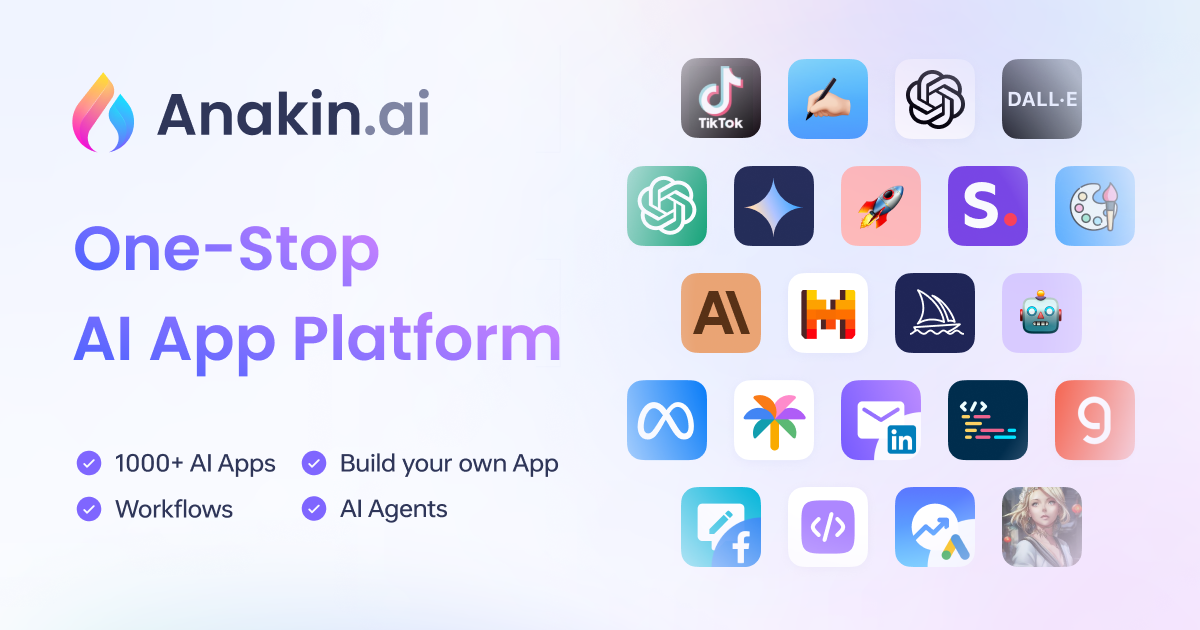As an enthusiast of AI and its applications, I’ve always been intrigued by AI image generators. MidJourney has been the go-to for many, but a new contender has caught my attention — FLUX. Developed by Black Forest Labs, FLUX promises to be a game-changer in the field of AI-driven creativity. But could FLUX really be the next MidJourney? To find out, I decided to put it to the test alongside MidJourney, DALL-E, and Stable Diffusion. Here’s what I discovered.
Wanna try out FLUX.1 the next generation AI image generator? 🚀🚀🚀
Look no further, Anakin AI offers a whole Universe of AI tools including FLUX.1, DALL.E 3, Stable Diffusion 3, and hundreds of AI tools. So, don’t waste any more time by jumping from website to website.🔥🔥🔥
Experience FLUX, DALLE and Stable Diffusion 3 Now at Anakin AI 👇👇👇


Testing the Waters: My First Encounter with FLUX

When I first discovered FLUX, its open-source platform and the promise of generating high-quality, photorealistic images immediately caught my attention. Unlike MidJourney, FLUX caters to a range of users with three distinct versions:
- FLUX Dev: An open-source option perfect for developers and hobbyists.
- FLUX Schnell: A faster, more efficient version built for quick iterations.
- FLUX Pro: A professional-grade, closed-source model accessible via API.
In my initial tests, FLUX delivered impressive results. The images were realistic and detailed, comparable to those created by MidJourney. However, to truly gauge its potential, I knew a head-to-head comparison with MidJourney, DALL-E, and Stable Diffusion across various scenarios was essential.
Head-to-Head Comparison: FLUX vs. MidJourney, DALL-E, and Stable Diffusion

To get a comprehensive view of each AI’s capabilities, I conducted a series of tests using the same prompts across all four tools. The results were fascinating, revealing strengths and weaknesses unique to each AI.
1. Image Quality: Can FLUX Compete with MidJourney?
One of the first things I tested was each tool’s ability to produce photorealistic images. FLUX excelled in this area, delivering images with incredible texture, depth, and lighting. In scenarios like creating a closeup product photo of a branded water bottle, FLUX’s output was clean and natural, closely mirroring reality.
Comparison Table: Image Quality

While FLUX and MidJourney performed similarly in realism, MidJourney had the edge when it came to mimicking various artistic styles. DALL-E and Stable Diffusion, while competent, didn’t quite match up in realism or artistic versatility.
2. Prompt Adherence: How Well Do These Tools Follow Instructions?
Adhering to prompts is essential, especially for detailed and complex requests. In my experience, FLUX performed well but had some inconsistencies. For instance, when I requested a three-headed dragon, it occasionally produced three individual dragons instead. On the other hand, MidJourney was more reliable in handling intricate prompts, often staying truer to the instructions provided.
Comparison Table: Prompt Adherence

Interestingly, FLUX outperformed the others when it came to handling text within images. Whether creating logos or integrating text into designs, FLUX delivered clear and accurate results, which is a significant advantage for certain applications.
3. Processing Speed: Which AI Delivers the Fastest Results?
Speed is essential in creative workflows, and FLUX Schnell, the faster version of FLUX, lived up to its promise. It consistently generated images faster than MidJourney, which is invaluable when you’re iterating on designs or under a tight deadline.
Comparison Table: Processing Speed

For anyone needing quick results without sacrificing quality, FLUX Schnell stands out as the best option.
4. User Experience: Which Tool Is Easiest to Use?
Finally, I considered the overall user experience. Both FLUX and MidJourney offer intuitive, user-friendly interfaces, but FLUX’s simplicity gives it an edge, especially for beginners. Its interface is straightforward, making it easy to get started and navigate through the various features.
Comparison Table: User Experience

For users new to AI image generation, FLUX is an excellent starting point. Its minimal learning curve and extensive customization options, especially in the Pro version, make it accessible and powerful.
My Test Results: A Detailed Breakdown
In addition to my personal comparisons, I conducted a series of specific tests using detailed prompts to push each AI to its limits. These tests included prompts for fashion photography, product shots, pixel art, and more. The results were telling:
- Fashion Photography: FLUX and MidJourney were neck and neck, with FLUX delivering slightly better texture and lighting.
- Product Shots: FLUX excelled, particularly in handling text on products, which MidJourney struggled with.
- Pixel Art: FLUX outperformed the others, capturing the essence of pixel art more effectively than MidJourney, DALL-E, or Stable Diffusion.
These tests confirmed my initial impressions: FLUX is a powerhouse, particularly when it comes to realism and text handling. However, MidJourney still has the upper hand in versatility and precision with more complex prompts.
The Open-Source Edge: Why FLUX’s Community-Driven Model Could Change the Game
One of the most exciting aspects of FLUX is its open-source nature. Unlike MidJourney, which is closed-source, FLUX allows for community contributions, which means it’s constantly evolving. This collaborative approach could lead to rapid improvements and innovations, particularly in areas where FLUX currently lags, such as complex prompt adherence and artistic style replication.
Why Open-Source Matters:
- Collaborative Development: The community can contribute to enhancements, making FLUX a dynamic and ever-evolving tool.
- Customization: You can tweak and modify FLUX to suit your specific needs, something that’s not possible with closed-source tools.
- Transparency: Full access to the tool’s codebase gives you more control and trust in what you’re using.
I’m particularly excited about what the future holds for FLUX. Its open-source nature not only fosters innovation but also allows users to tailor the tool to their specific needs, something that could set FLUX apart in a big way.
Looking Ahead: FLUX’s Future in Text-to-Video and Beyond
FLUX’s developers aren’t stopping at image generation. They’re already working on integrating text-to-video generation, a feature that could revolutionize digital content creation. This could open up new possibilities for storytelling, marketing, and more.
Potential Impact of Text-to-Video:
- Enhanced Storytelling: Seamlessly generate entire video sequences from a simple text prompt.
- New Creative Opportunities: This feature could revolutionize marketing, education, and entertainment content.
- Competitive Edge: If FLUX can pull this off, it could set a new standard in AI-driven content creation.
I can’t wait to see how this feature develops. If FLUX can deliver the same quality in video as it does in images, it could become the go-to tool for digital creators across various industries.
Conclusion: Is FLUX Going to Be the Next MidJourney?

After thoroughly testing FLUX alongside MidJourney, DALL-E, and Stable Diffusion, I can confidently say that FLUX is emerging as a strong contender in the AI image generation field. It shines in creating realistic visuals, handling text within images seamlessly, and delivering fast results, especially with its "Schnell" version. The user-friendly interface and open-source platform make it easily accessible and primed for continuous improvement.
That said, MidJourney still has the upper hand in some areas, particularly its flexibility with artistic styles and precision with complex prompts. While DALL-E and Stable Diffusion are capable, they generally fall short compared to the performance of FLUX and MidJourney in most cases.
So, will FLUX surpass MidJourney? It’s certainly possible. With ongoing development and the potential to introduce groundbreaking features like text-to-video, FLUX is not just another AI image generator; it has the potential to reshape the future of AI-driven creativity.
For digital artists, content creators, or anyone eager to experiment with cutting-edge tools, FLUX is a platform worth exploring. It combines speed, quality, and a community-driven approach that could see it becoming a leader in the space. Whether it will fully dethrone MidJourney remains to be seen, but one thing is clear: FLUX is a force to be reckoned with. Give it a try—you might discover your new favorite AI image generator.
